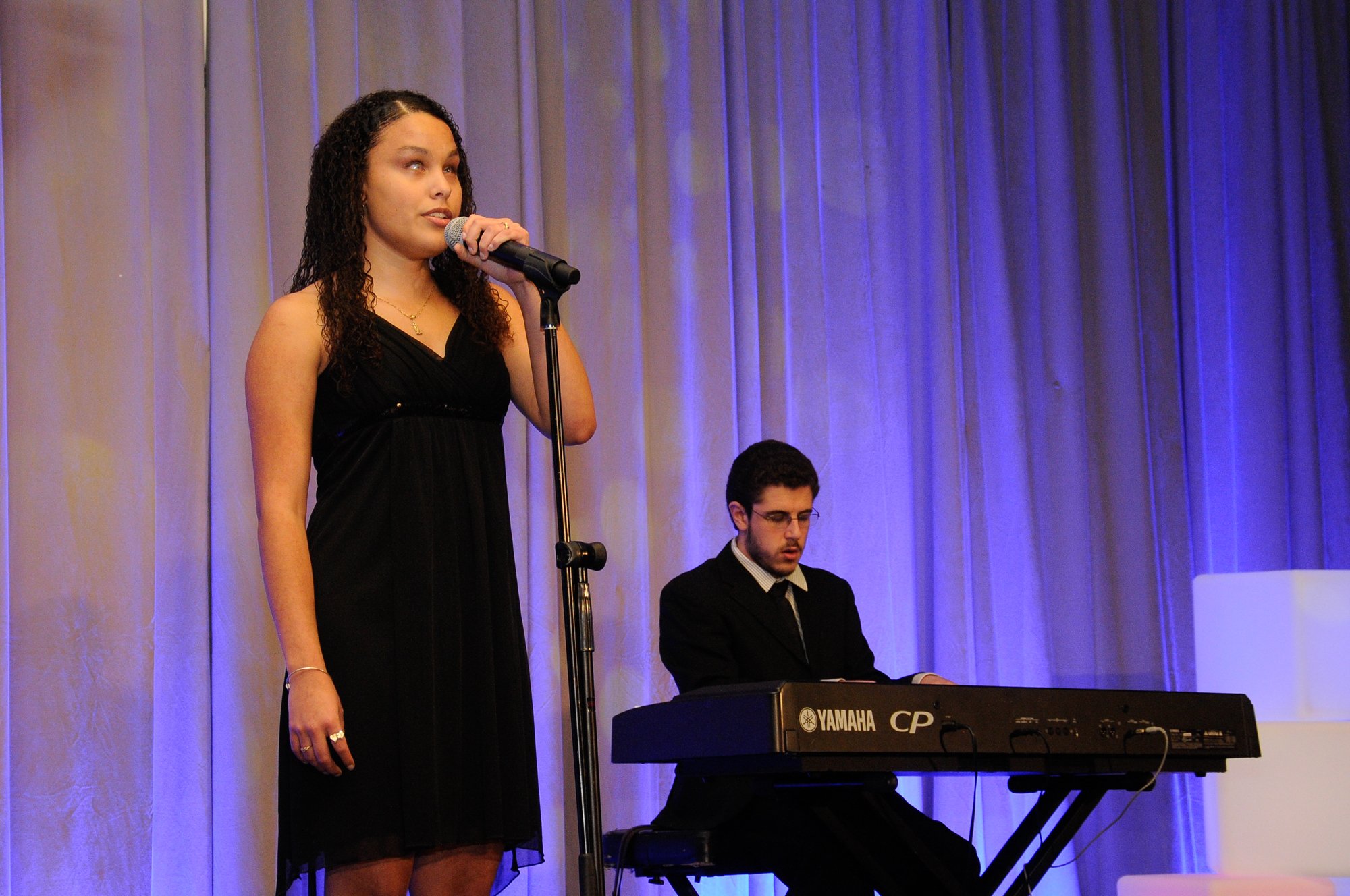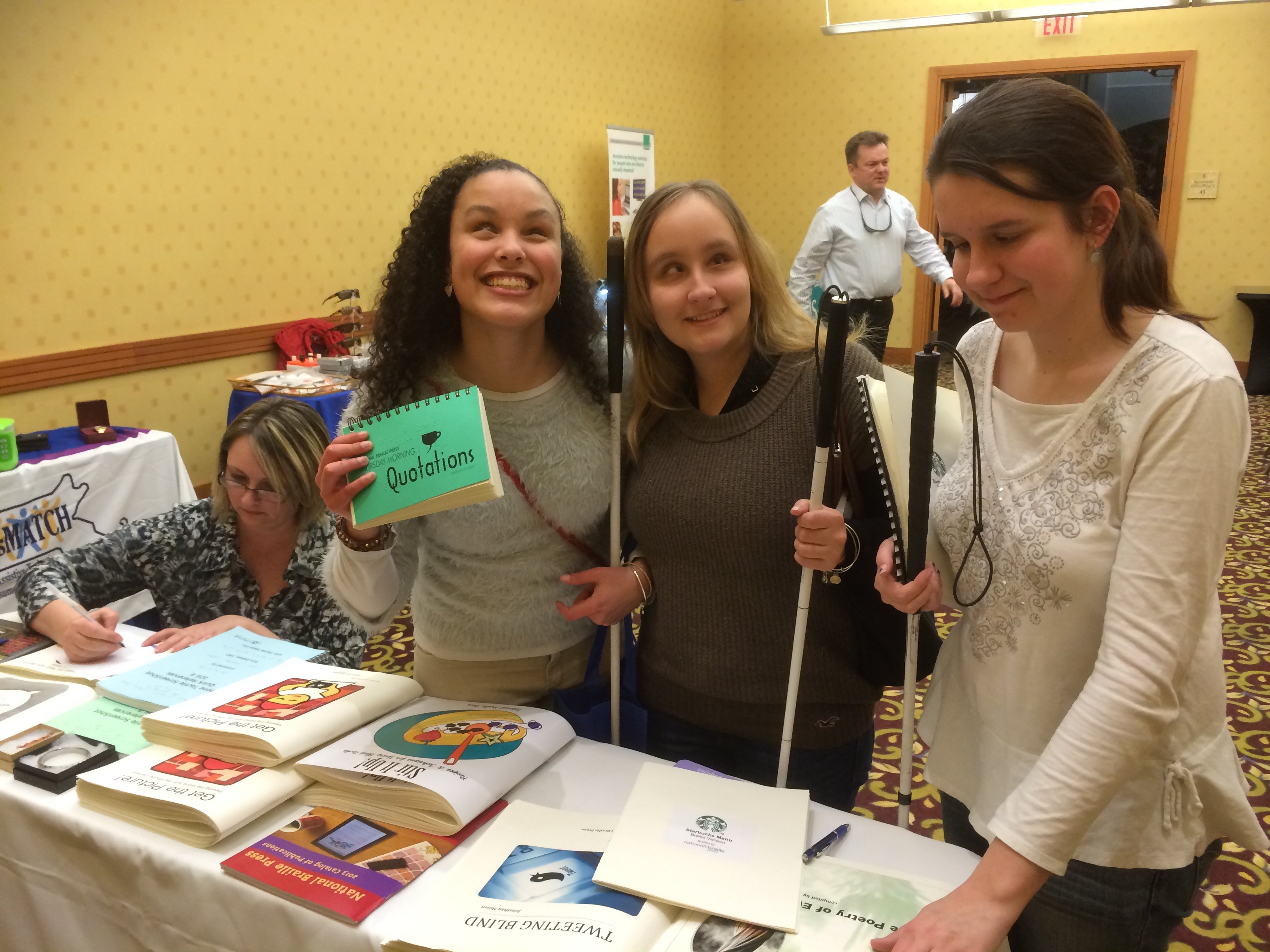Sighted people look at braille, and all they can see are dots on a page. All they can feel are bumps, and they do not mean a thing. However, to every blind person, braille means everything.
My name is Precious Perez, and I am from Chelsea, Massachusetts. I have a condition called Retinopathy of Prematurity, otherwise known as ROP. I was born two and a half months early, so my eyes were not developed, and the oxygen I needed to survive took my sight. I have never been able to see, but I have always been able to feel, and one of the first things I became accustomed to was the feeling of letters beneath my fingertips.
 Precious performing at NBP's A Million Laughs for Literacy Gala in 2015
Precious performing at NBP's A Million Laughs for Literacy Gala in 2015
I began learning to read and write Braille in pre-school, at the age of three. I can remember practicing on the Perkins brailler, and reading words on a page. I can remember my mom putting braille labels on household items as I got older; feeling for the button on my television and finding TV in braille right next to it. I remember falling in love with books, and manually brailling out my math problems every night for homework in first grade. I remember the first time I was given a notetaker with a refreshable braille display. When I think of my journey as a blind person, I think of braille and how it has made me independent and free.
There are countless reasons why braille is significant. This code is used by myself and many others every single day. Bathrooms, ATMs, elevators: all of these signs have braille and print on them. If I need to make a bank transaction, I do not need someone to tell me where to insert my card or my headphones for audio feedback. I do not need someone to push my floor for me in the elevator, because there's braille next to each button. I can find a women's bathroom in any public building, because there is braille on the sign. I am not only capable of locating and identifying things, but I am able to do it without help from anyone else, which would not be possible without braille.
 Precious checking out braille materials with friends
Precious checking out braille materials with friends
Navigation and daily personal management tasks are not the only things for which braille is necessary. I am a sophomore at Berklee College of Music, and I take theory classes in which I use braille books. I can read key signatures, scales, notes, and rhythms along with my peers in Ear Training class with my textbook instead of listening back to a recording and needing to always memorize. I can analyze chord progressions and take notes in class using my notetaker. I can write articles like this one, and read over my writing to check my spelling, grammar, and punctuation without having to go character by character with my screenreader and hoping for the best. I can read anything I need or want to read, whenever and wherever I want to read it, just the way anyone with sight could. The same way sighted people use pen and paper, I can use a slate and stylus or a Perkins brailler. If the power goes out, I can always write things down if my laptop dies. Braille gives me the ticket to freedom that audio can supplement, but never give.
Braille is something I could not live without, and without a form of reading and writing, I would not be where I am today.
I am currently a summer counselor atBLIND Inc, an NFB training center in Minnesota, and I have been lucky enough to have the opportunity to share my love and passion for braille and its significance with blind middle school students who are eager to learn. Every blind person deserves independence and freedom. Living these truths would not be as feasible without the ability to take notes, read books for school, label household appliances and medicine, and a number of other things. Without braille, I would not be educated and free to educate others. “If reading mediums change and braille gets discredited out loud, I'll counter the doubt.” Not only do I need braille, but every blind person needs braille. Braille is happiness. Braille is freedom. Braille is independence.
